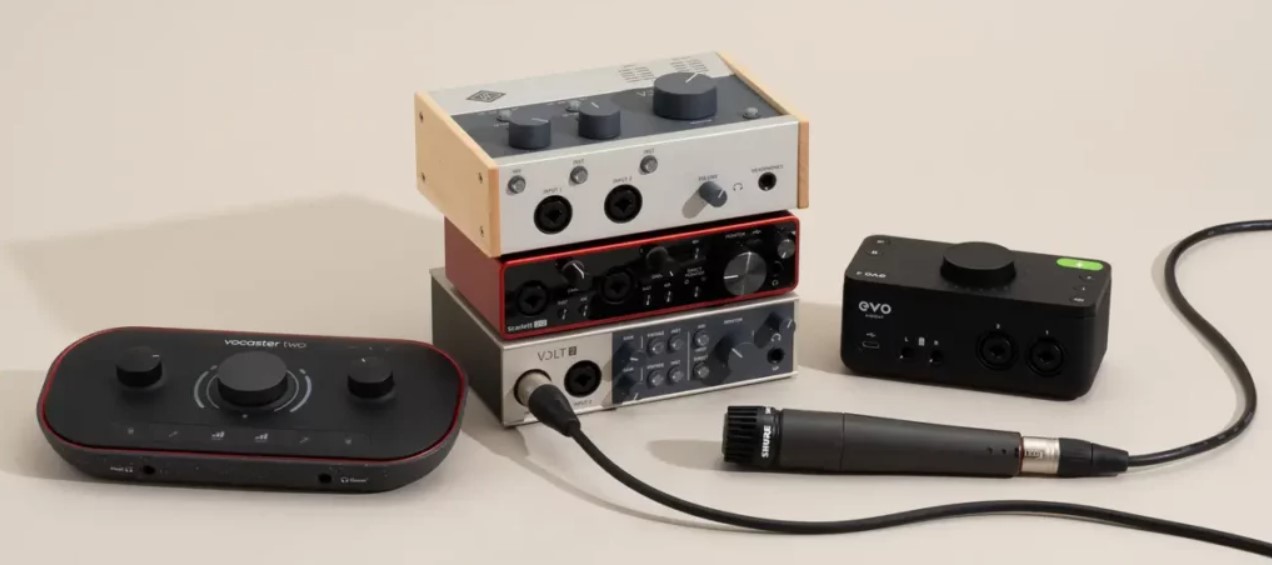Is Sound Enhancer Good?
Wednesday, August 2, 2023, 2:25 PM GMT-5

The quest for a perfect auditory experience has become paramount in a world filled with a symphony of sounds. As we navigate the cacophony of modern life, the need for sound enhancer devices emerges as a potential solution.
These technological marvels possess the power to transform the way we perceive and interact with sound. Imagine yourself standing in the midst of a bustling city, where the honking of cars, the chatter of pedestrians, and the distant hum of machinery blend into an indistinguishable noise.
Now envision the ability to selectively amplify the melodious trill of a songbird perched on a nearby branch, effortlessly isolating it from the auditory chaos. Sound enhancer devices offer hope for those seeking a harmonious sonic experience.
In this article, we will explore the pros and cons of using sound enhancer devices, consider important factors before embracing them, and ultimately empower you to make an informed decision about their efficacy. Prepare to embark on a journey toward auditory mastery.
Key Takeaways
- Sound enhancer devices improve audio quality and clarity by amplifying sound waves and reducing background noise.
- They benefit individuals with hearing impairments or those who want to enhance their listening experience.
- Pros of using sound enhancer devices include improved speech understanding and increased audio enjoyment.
- Cons of using sound enhancer devices include dependency on the devices to perceive and process sound.
Sound Enhancer Devices
Sound enhancer devices are designed to improve the quality and clarity of audio by amplifying sound waves and reducing background noise, resulting in a more immersive auditory experience.
Sound enhancer technology utilizes advanced algorithms to process audio signals and enhance specific frequencies, making it easier for individuals to discern different sounds and voices.
These devices typically consist of a microphone, amplifier, and speaker, working together to capture and amplify sound. Background noise reduction algorithms help filter out unwanted sounds, such as wind or background chatter, ensuring the user can focus on the desired audio.
Pros of Using Sound Enhancer Devices
Sound enhancer devices offer numerous advantages when selecting a service, making them a popular choice among individuals seeking to optimize their auditory experience. These devices provide a range of benefits, including improved sound quality, enhanced speech intelligibility, and increased environmental awareness.
Sound enhancers utilize advanced technologies, such as digital signal processing and noise reduction algorithms, to amplify and clarify incoming sounds. By selectively amplifying specific frequencies, they can enhance speech sounds and make conversations easier to understand, especially in noisy environments.
When selecting a service, sound enhancer devices can also provide a wider dynamic range, allowing users to perceive subtle nuances in music and other audio sources. These devices can help individuals with hearing loss compensate for their auditory impairment and improve their overall quality of life.
Cons of Using Sound Enhancer Devices
Sound enhancer devices may lead to a dependency on these devices to perceive and process sound. This dependency can be seen as a disadvantage as it may limit the individual’s ability to adapt to different listening environments without the device’s assistance.
Potential discomfort or side effects are associated with the prolonged use of sound enhancer devices, such as ear irritation, headaches, or tinnitus. The cost and accessibility of these devices can be a drawback, as they may be expensive and not easily accessible to everyone, thus limiting their availability to individuals who could benefit from them.
Dependency on Devices
Dependency on devices for sound enhancement is a prevalent concern in today’s technologically-driven society. While sound enhancer devices can provide immediate benefits regarding improved hearing and sound quality, relying too heavily on these devices can have long-term effects on individuals.
One of the main issues with dependency on sound enhancer devices is that it can lead to a decreased ability to process and perceive sound naturally. This can result in a reliance on the devices and a reduced ability to function without them.
Long-term use of sound enhancer devices may lead to auditory system adaptation, where the brain becomes accustomed to the amplified sounds and requires even higher amplification levels to achieve the same effect. This dependency on devices can have potential discomfort or side effects, which will be discussed in the subsequent section.
Potential Discomfort or Side Effects
Potential discomfort or side effects associated with relying heavily on sound enhancer devices include decreased natural sound perception and the need for higher amplification levels for the same effect.
While sound enhancers can improve hearing abilities, excessive reliance on them may lead to a decreased ability to perceive sounds without assistance. This can result in a diminished appreciation for the richness and complexity of natural sounds.
Individuals who heavily depend on sound enhancers may develop a tolerance, requiring higher amplification levels over time to achieve the desired effect. Long-term dependency on these devices could potentially negatively affect individuals’ overall auditory health and well-being.
These potential risks and long-term effects highlight the importance of considering the trade-offs associated with using sound enhancer devices.
Cost and Accessibility
Cost and accessibility are important factors to consider when evaluating the overall value of sound enhancer devices, as they can determine the extent to which individuals can benefit from and access these devices, much like the branches of a tree reaching out to provide shade to those in need.
Cost-effectiveness is crucial in determining whether sound enhancer devices are viable for individuals. It is essential to consider the initial purchase cost and ongoing maintenance and repair expenses.
The availability of these devices is paramount. Accessibility factors include the ease of obtaining sound enhancer devices, such as their availability in local stores or online platforms, as well as the availability of support services for fitting and adjusting the devices.
Considerations Before Using Sound Enhancer Devices
Before using sound enhancer devices, it is essential to consider various factors. One key consideration is the benefits of sound enhancer devices. These devices are designed to amplify and clarify sound, significantly improving the listening experience for individuals with hearing impairments.
They can enhance speech comprehension and improve communication in various settings. It is also important to note that there are alternatives to sound enhancer devices. For example, individuals can use closed captioning or sign language to overcome hearing difficulties. Additionally, some individuals may prefer not to rely on external devices and instead focus on adapting their environment to better suit their needs.
Considering these factors will allow individuals to decide whether to use sound enhancer devices or explore other options. Transitioning to the subsequent section about the conclusion, making an informed decision is crucial in determining the most suitable approach to address hearing impairments.
Conclusion
The use of sound enhancer devices has both advantages and disadvantages. On the one hand, these devices can greatly improve sound quality, making it clearer and more enjoyable for the user. They can help individuals with hearing impairments to better engage in various activities.
On the other hand, sound enhancer devices may have some drawbacks, such as dependency and potential damage to the ears if not used properly. Before using such devices, one must consider personal needs, budget, and potential risks.
Sound enhancer devices can be beneficial but require careful consideration and responsible usage. ‘Don’t judge a book by its cover’ – it is essential to thoroughly evaluate the pros and cons before deciding.



